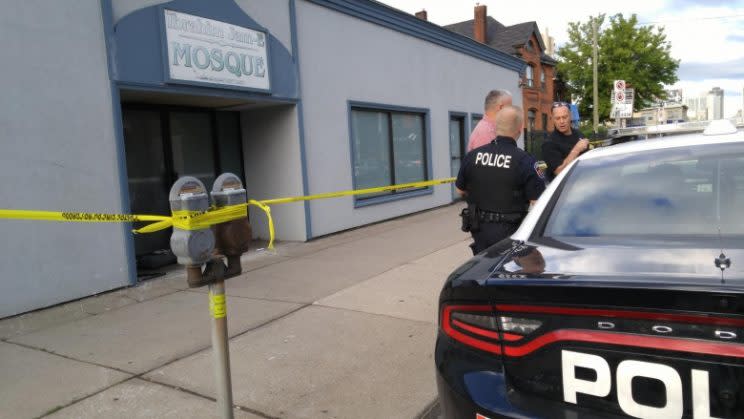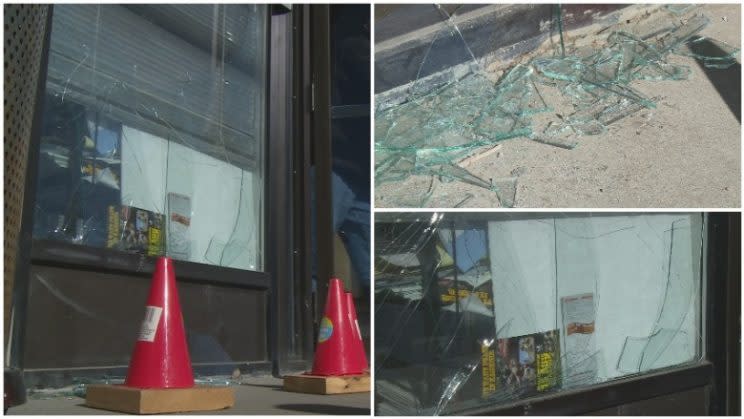Canada's anti-Islamophobia motion means well, but is mostly symbolic says hate crime lawyer

Canada’s parliament quietly passed an anti-Islamophobia motion last week condemning acts of hatred against Muslims.
Islamophobia is defined as “dislike of or prejudice against Islam or Muslims, especially as a political force.”
The Oct. 26th motion was one that was similar to an NDP motion brought up on Oct. 6 which was voted down by Conservative MPs.
According to the National Council of Canadian Muslims several acts of Islamophobia occurred in the week after the first motion on Oct. 6 was voted down, including smashed windows at a mosque and anti-Islam posters on a Calgary campus. The NCCM contends that when leaders don’t stand up to such acts, more hate crimes follow and stated recently that “the month of October has seen the largest number of alleged hate crimes and incidents targeting Muslims than any other month so far this year.”

In 2013, the most recent Statistics Canada data available, religiously-motivated crimes against Muslims jumped from 45 to 99 nationwide compared to 2011 while hate crimes, overall, actually went down. The numbers indicate when charges are actually laid.
But the NCCM – which has been tracking and mapping all kinds of hate crimes since 2013 – says that’s just the tip of the iceberg.
On Oct. 22, there was an attack on a Sept-Îles mosque — the third one since 2013. That prompted Samer Majzoub, President of the Canadian Muslim Forum, to initiate a Parliamentary petition which quickly collected 70,000 signatures and sparked the re-introduction of the motion on Oct. 26. That motion had unanimous consent.
While the motion indicates that the leaders of this country are unified in condemning racist acts against those of the Muslim faith, it doesn’t introduce any new actions concerning hate crime.
Yahoo Canada News spoke with Krisha Dhaliwal, an immigration lawyer in Vancouver who is part of the first Islamophobia hotline in the country, about the Parliamentary motion and what it means. The hotline, created by legal organizations, began operating in B.C. last March with a second one launched in Alberta in September.
What does this parliamentary motion mean, in real terms?
The symbolism of it is the biggest impact. It’s meant to stigmatize that hate crime, which is good. It says clearly that attitudes socially are changing. But I don’t know whether that, at the end of the day, change’s people’s opinions [i.e. those against Muslims]. I think it’s a tense time, I just hope the motion has a kind of trickle-down effect. I just don’t know. I’m glad the motion was approved but as far as real change, it’s not something I can say will happen.
I’m Sikh and my parents were immigrants but I live in a bubble. I work in immigration so my colleagues and the people I deal with are diverse and everyone I interact with feels the same way about diversity. I’m in a pro-diversity bubble. I don’t encounter racism very often but I think lots of people experience it on a daily basis [especially if they look Muslim].
These people who are pro-white power, anti-immigration — will the motion influence them? I doubt it. I don’t have an answer for [how we change those attitudes].
Can Islamophobia be confronted and dealt with?
I feel that it’s one concern masquerading as another. Everything is connected. A lot of xenophobia is the result of other kinds of inequality in society. When I look to the United States, when people are anti-immigration, what they are really concerned about is the jobs and the economy and is there enough money to go around?
I don’t mean to reduce it to this but there are a lot of concerns about the economy — maybe it’s time to have guaranteed minimum income. I bet that would solve a lot of problems.
It’s a symptom of anxieties about other social problems — is there a lack of education? or a lack of exposure [to other kinds of people]? People’s oppression and privileges intersect in different ways.
[The parliamentary motion] as a generator of actual change? I don’t think it’s the answer.
We have laws against hate crimes – so how easy or hard are these to investigate and prosecute?
It’s like any crime – it depends on the evidence. There was the recent case of a Sikh man in Abbotsford, B.C. being hurled racial abuse by a man and it was filmed on his camera. That man has been charged – that was pretty easy, the evidence is there. It’s when there isn’t concrete evidence, that’s harder to prosecute.
If a hate crime happens, you should report it right away so that there is a police record — where, when and how. Witnesses can be tracked down. Finding witnesses lends credibility.
Unfortunately, there are people — I think of Muslim women wearing a hijab – who probably experience this every day and feel that there is nothing that they can do and just get used to it. This is a marginalized demographic: sometimes they are isolated, or they just arrived and don’t speak the language and don’t think they can get help.
Our hotline lawyers are always doing outreach into communities to meet people where they are and to provide information in their language.
There is a measured rise in anti-Muslim acts in Canada, so where do we go from here?
It’s cultural, so it’s complex and amorphous. In one way, it’s scary but then from a historical perspective, things have changed a lot in this country. I mean 50 years ago, we had laws which were explicitly racist — that non-Europeans were not allowed in. It’s so shocking if we look back. It was a cultural change that allowed other kinds of people into Canada and that’s encouraging.
If we take a macro-perspective, then we see it’s possible to change. How exactly? I don’t know. We don’t like talking about racism in this country. It’s the culture of our conversations that has to change, we have to be critical about our own society while also expressing that we love it.



